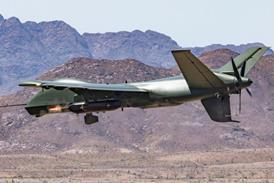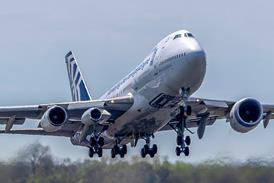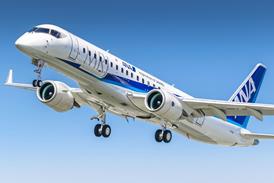The US House of Representatives passed a bill meant to force the FAA and airlines to rapidly boost regional airline safety through enhanced training and hiring requirements, fatigue countermeasures and other interventions following the deadly Colgan Air Bombardier Q400 crash in February.
The bill passed even though FAA administrator Randy Babbitt told ATI in July the legislation "is not necessary".
However, Regional Airline Association president Roger Cohen says in a statement, "We look forward to working with all stakeholders to implement the requirements of the Airline Safety and Pilot Training Improvement Act. This bill has many elements mirrored in our own strategic safety initiative including a thorough study of pilot commuting and fatigue."
The bill also carried support from the Air Line Pilots Association, which says in a statement that the airline industry will be safer because of the bill.
The legislation requires airline pilots to hold an FAA Airline Transport Pilot (ATP) license, which can be obtained with a minimum of 1,500 flight hours.
Current law requires a first officer to have a Commercial Pilot License, which can be obtained with 250 flight hours.
The bill also requires the agency to raise the minimum requirements for the ATP licenses. Pilots must receive training to function in factors such as a multi-pilot crew, high altitude operations and adverse weather conditions including icing.
The legislation also enables the FAA to consider allowing certain academic training hours to count toward the 1,500-hour ATP certificate requirement.
Per the bill, the FAA must also ensure that pilots are trained on stall recovery, upset recovery and that airlines provide remedial training on these topics.
The bill establishes comprehensive pre-employment screening of prospective pilots including an assessment of a pilot's skills, aptitudes, airmanship and suitability for functioning in the airline's operational environment.
Airlines must establish pilot mentoring programs, create pilot professional development committees, modify training to accommodate new-hire pilots with different levels and types of flight experience, and provide leadership and command training to pilots in command, according to the bill.
The bill also directs the FAA to update and implement a new pilot flight and duty time rule and fatigue risk management plans to track scientific research in the field of fatigue. Carriers are also required to create fatigue risk management systems approved by the FAA, per the legislation.
The bill also requires the US DOT Inspector General to study and report to Congress on whether the number and experience level of safety inspectors assigned to regional airlines is commensurate with that of mainline airlines, mandates that the first page of an Internet Web site that sells airline tickets disclose the carrier that operates each segment of the flight and requires the DOT Transportation Secretary provide an annual report to Congress on what the agency is doing to address each open National Transportation Safety Board recommendation pertaining to commercial carriers.
Source: Air Transport Intelligence news
















